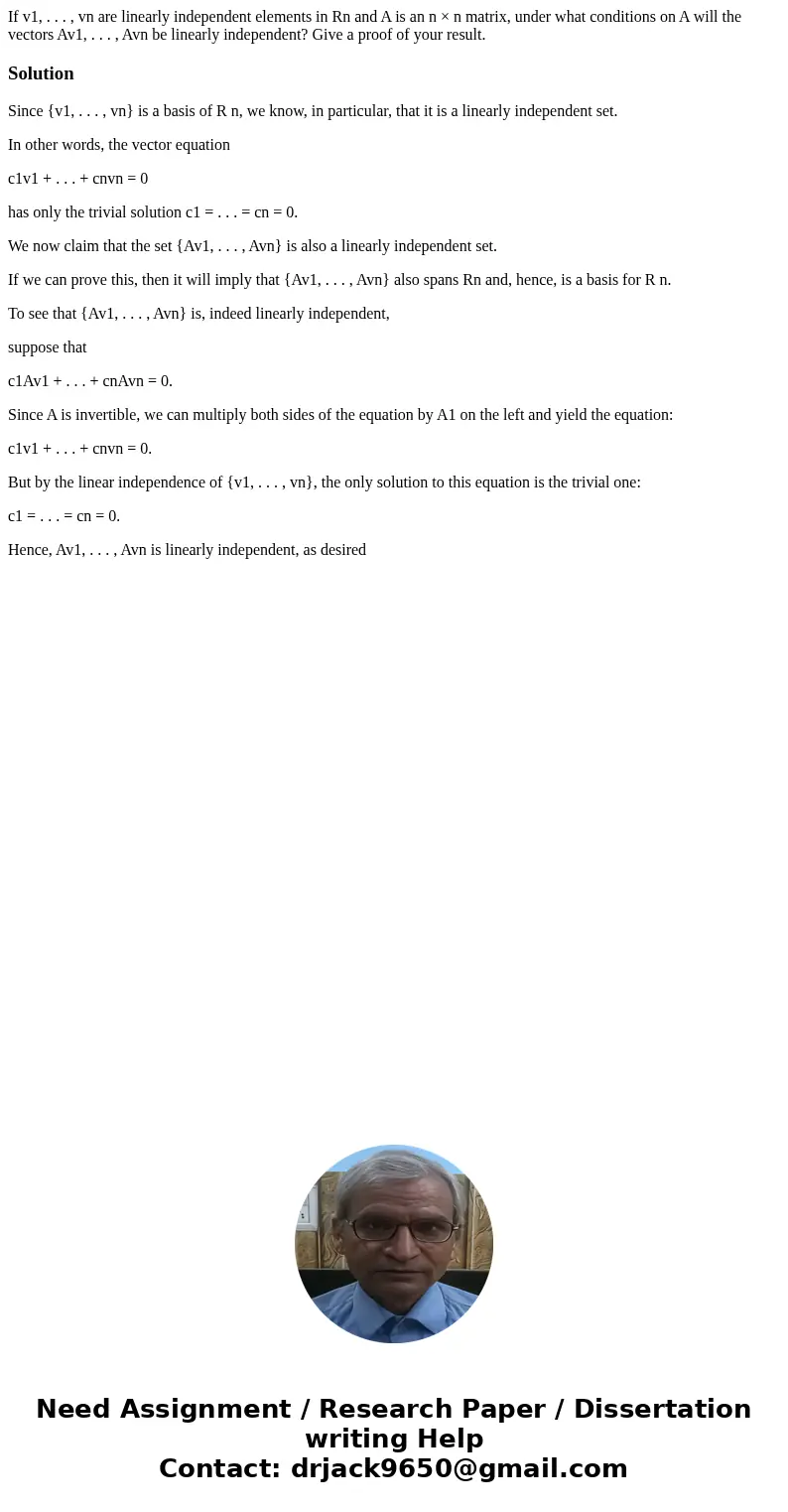If v1 vn are linearly independent elements in Rn and A i
If v1, . . . , vn are linearly independent elements in Rn and A is an n × n matrix, under what conditions on A will the vectors Av1, . . . , Avn be linearly independent? Give a proof of your result.
Solution
Since {v1, . . . , vn} is a basis of R n, we know, in particular, that it is a linearly independent set.
In other words, the vector equation
c1v1 + . . . + cnvn = 0
has only the trivial solution c1 = . . . = cn = 0.
We now claim that the set {Av1, . . . , Avn} is also a linearly independent set.
If we can prove this, then it will imply that {Av1, . . . , Avn} also spans Rn and, hence, is a basis for R n.
To see that {Av1, . . . , Avn} is, indeed linearly independent,
suppose that
c1Av1 + . . . + cnAvn = 0.
Since A is invertible, we can multiply both sides of the equation by A1 on the left and yield the equation:
c1v1 + . . . + cnvn = 0.
But by the linear independence of {v1, . . . , vn}, the only solution to this equation is the trivial one:
c1 = . . . = cn = 0.
Hence, Av1, . . . , Avn is linearly independent, as desired

 Homework Sourse
Homework Sourse